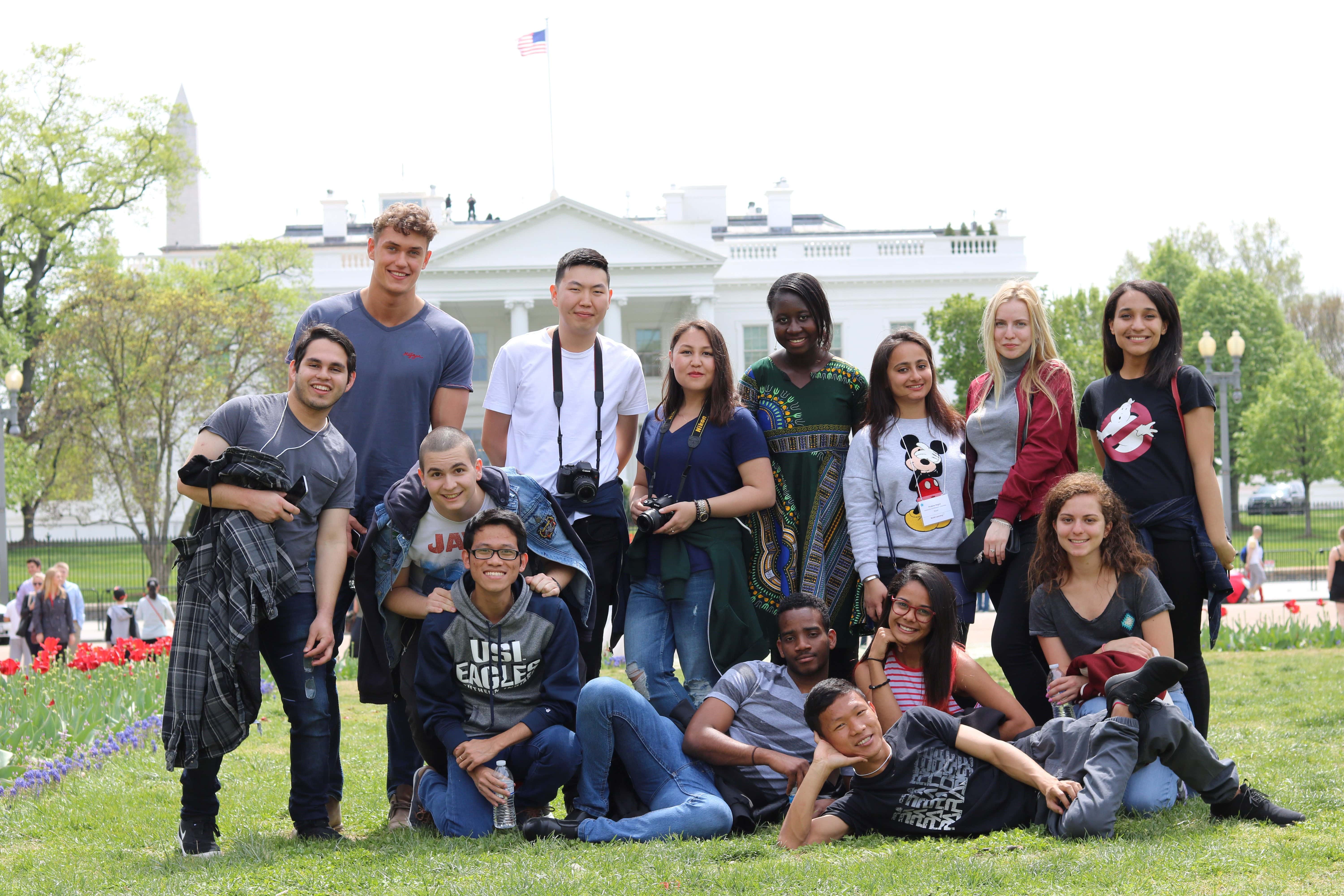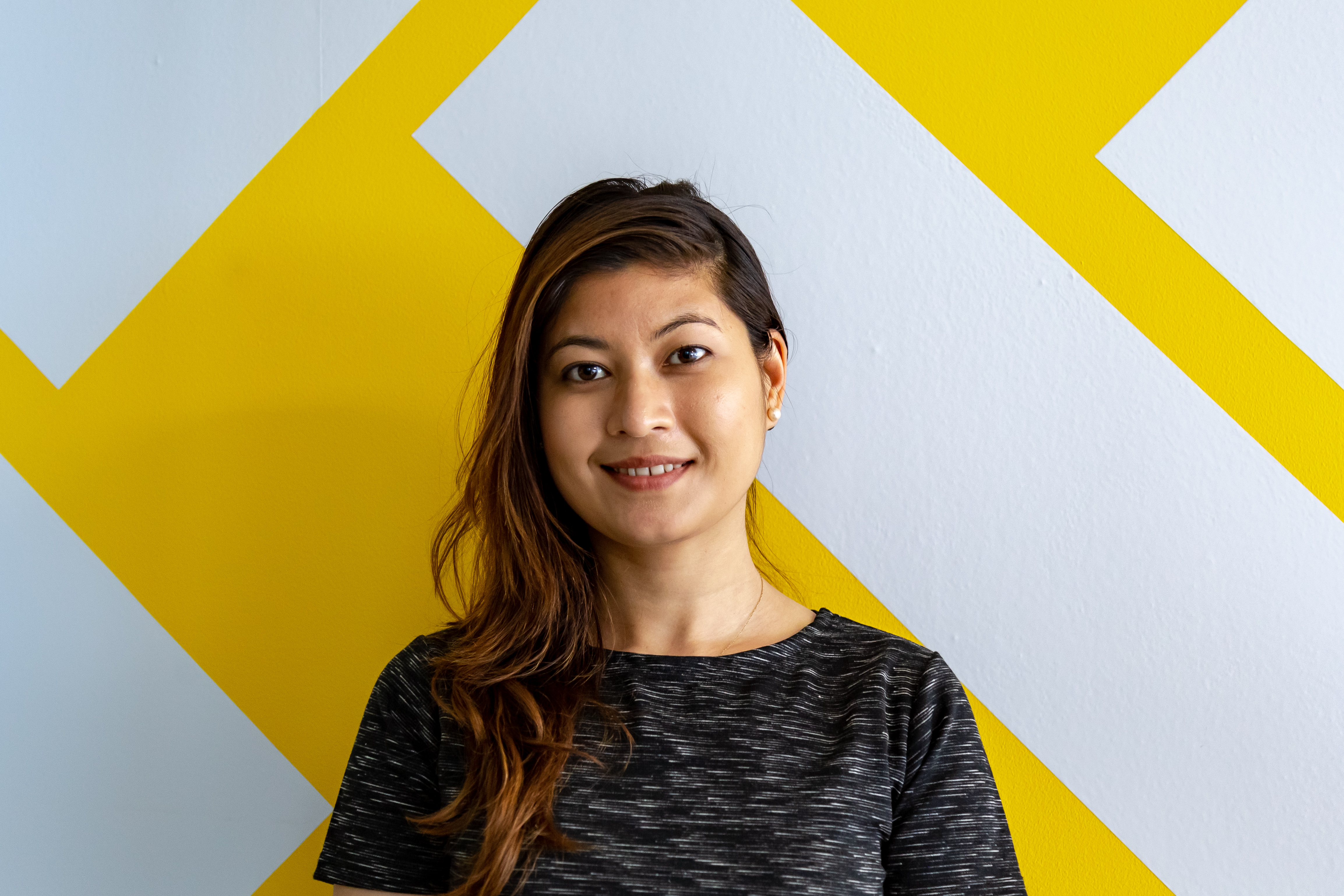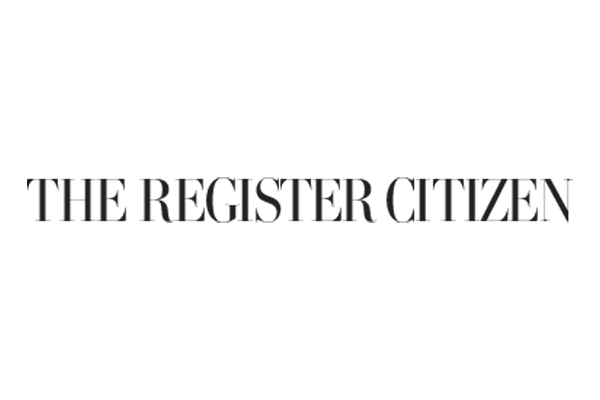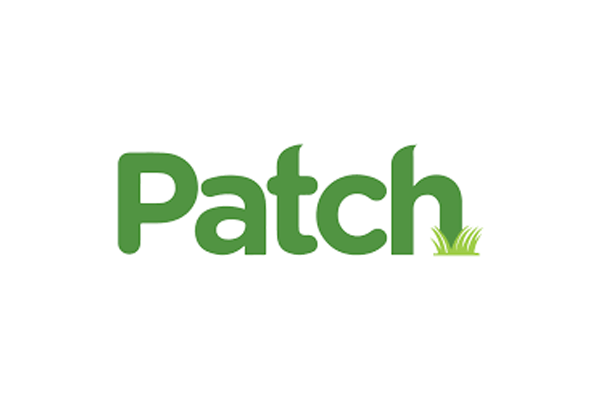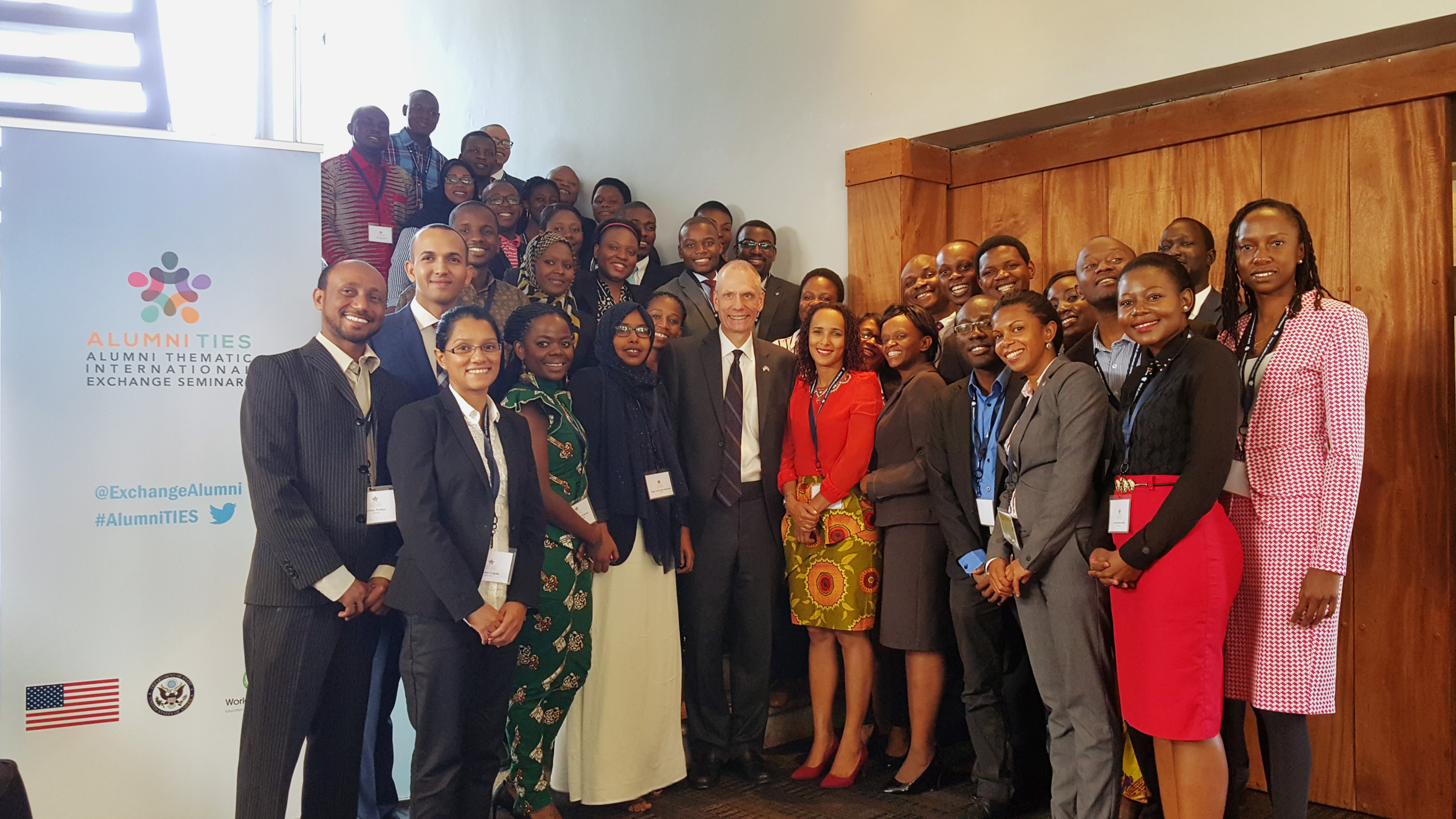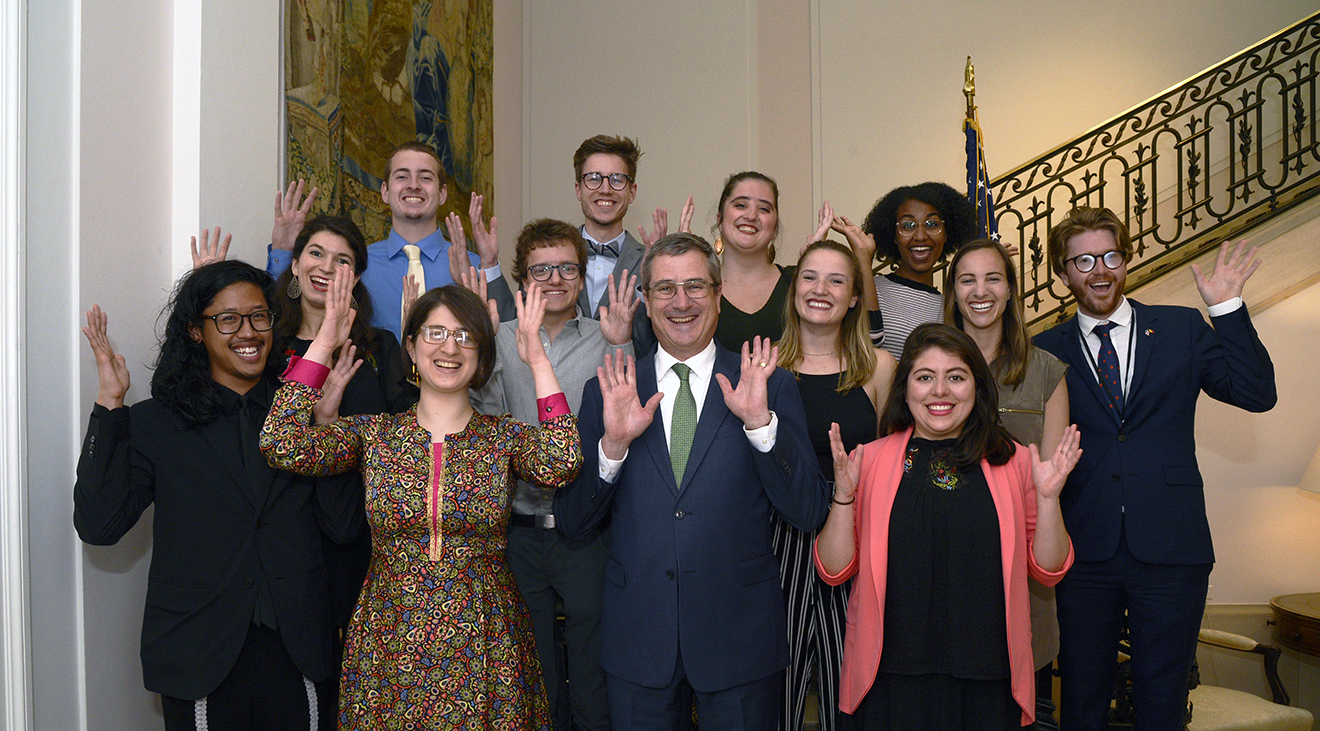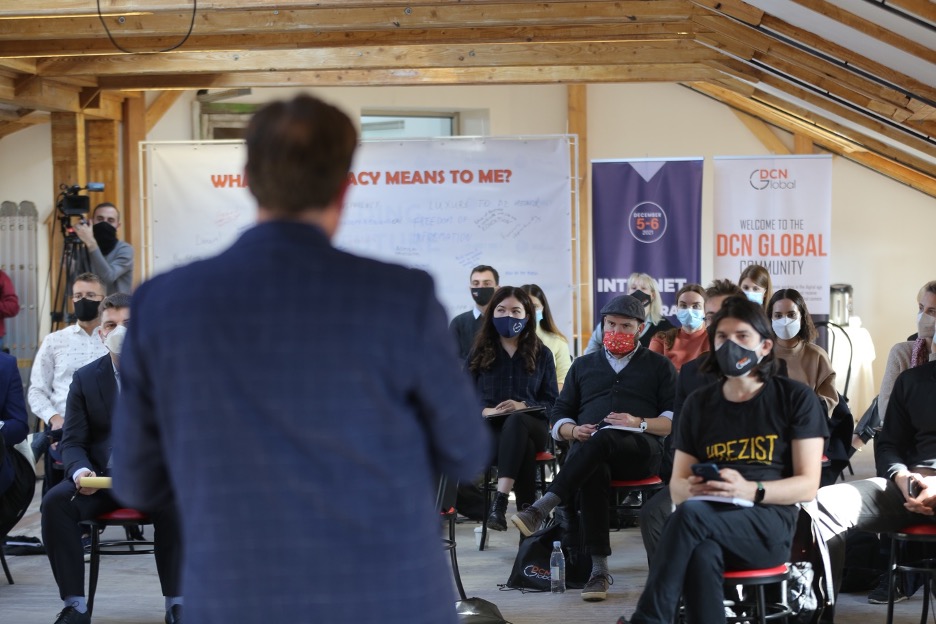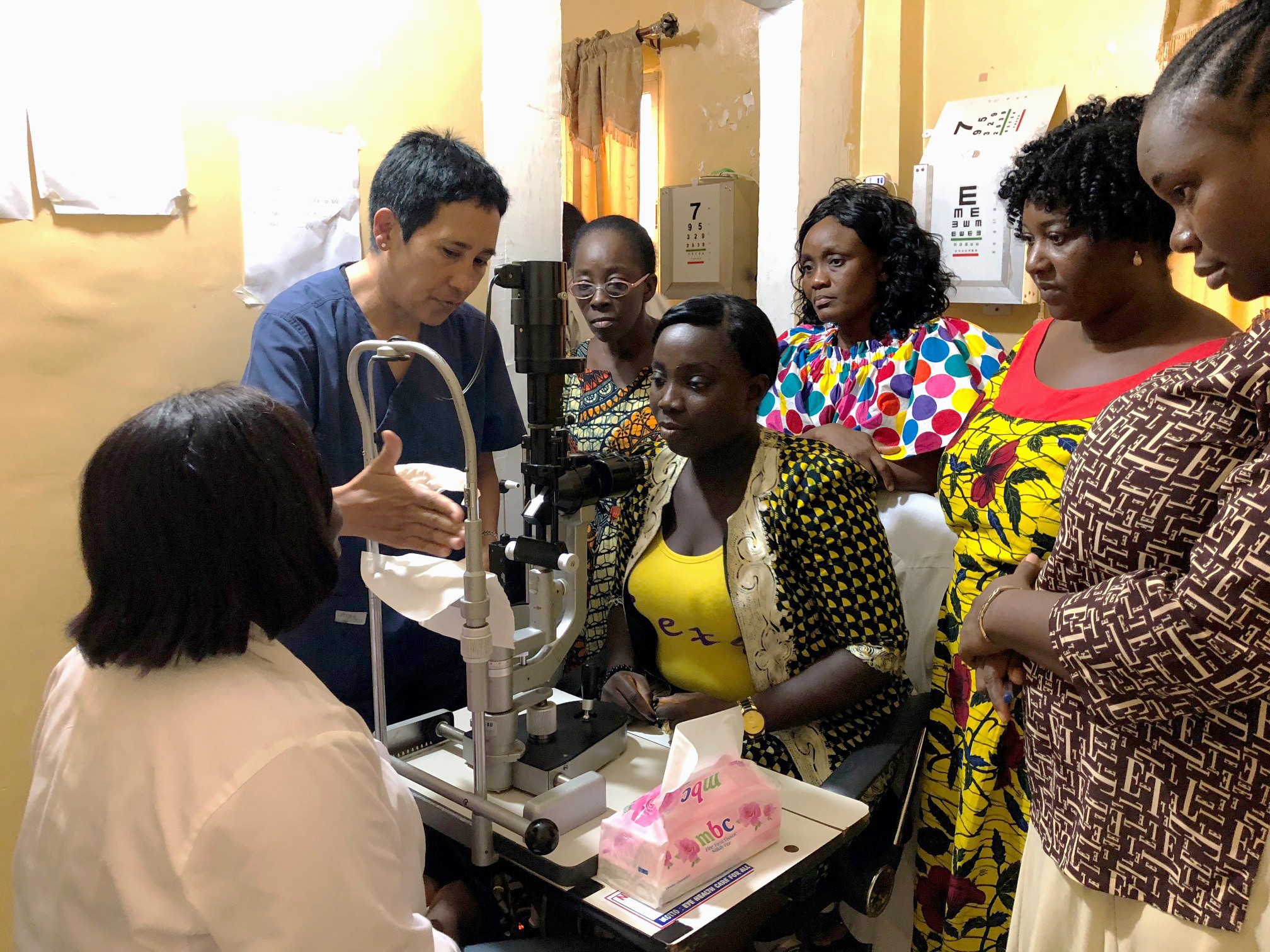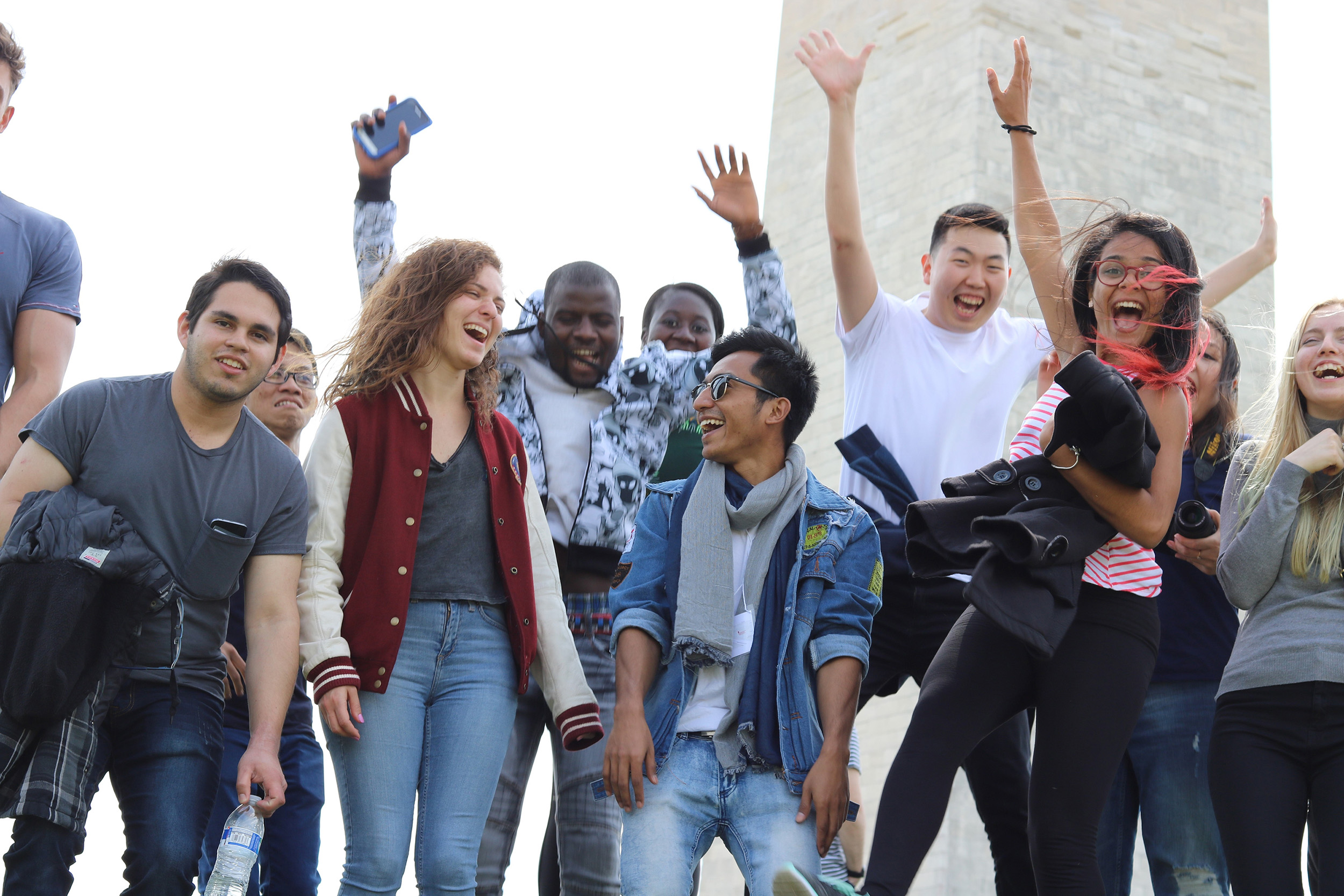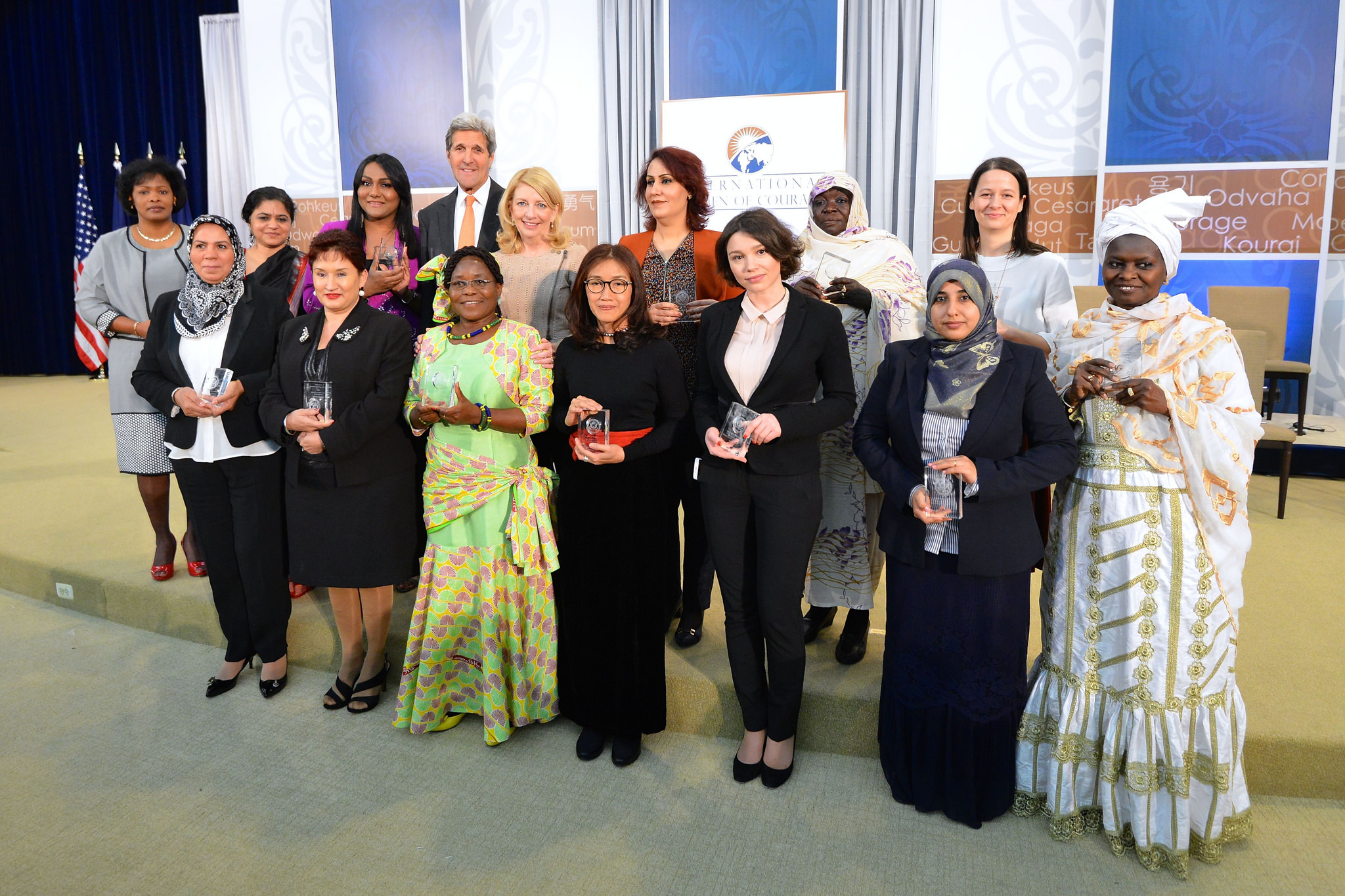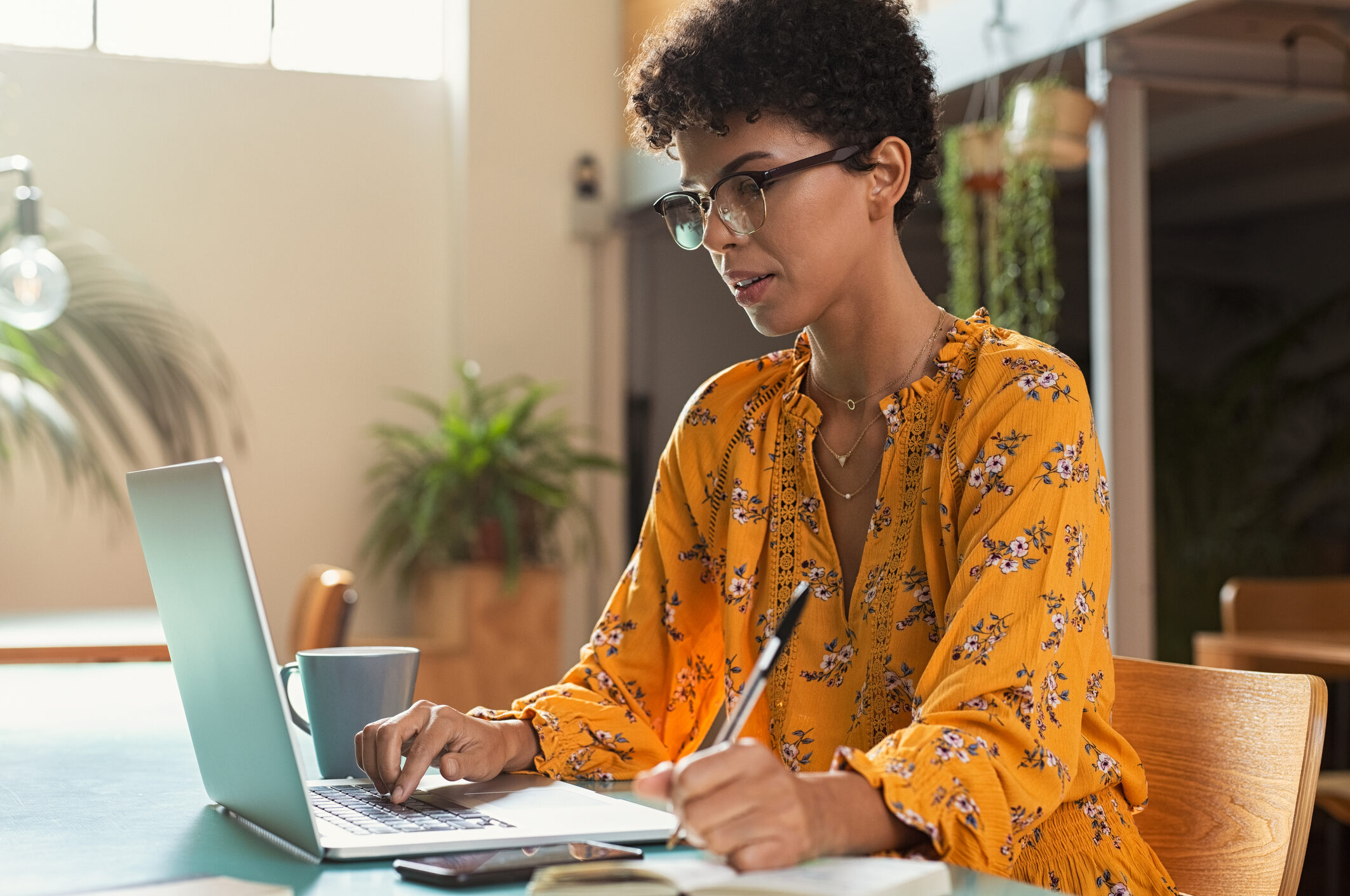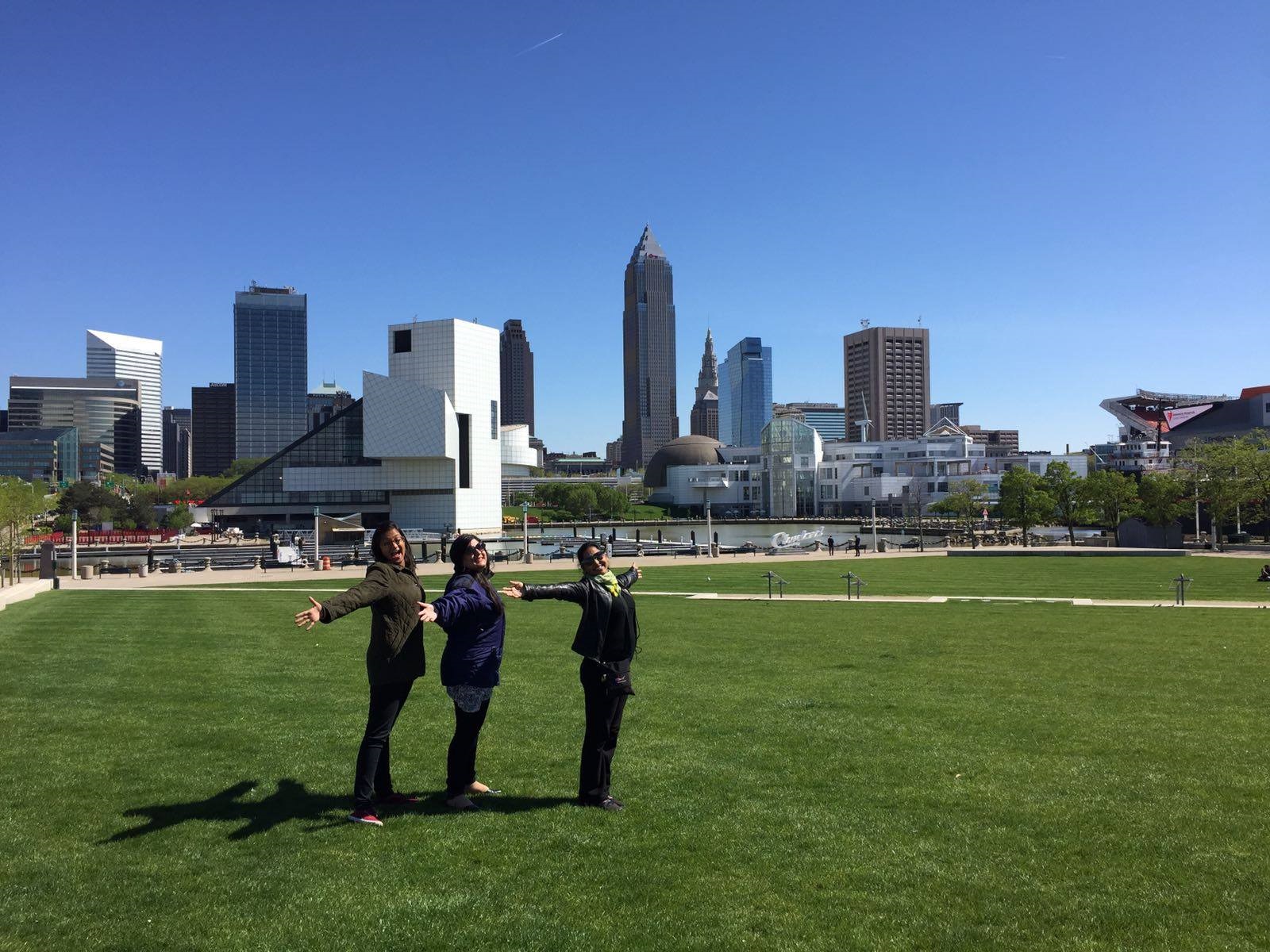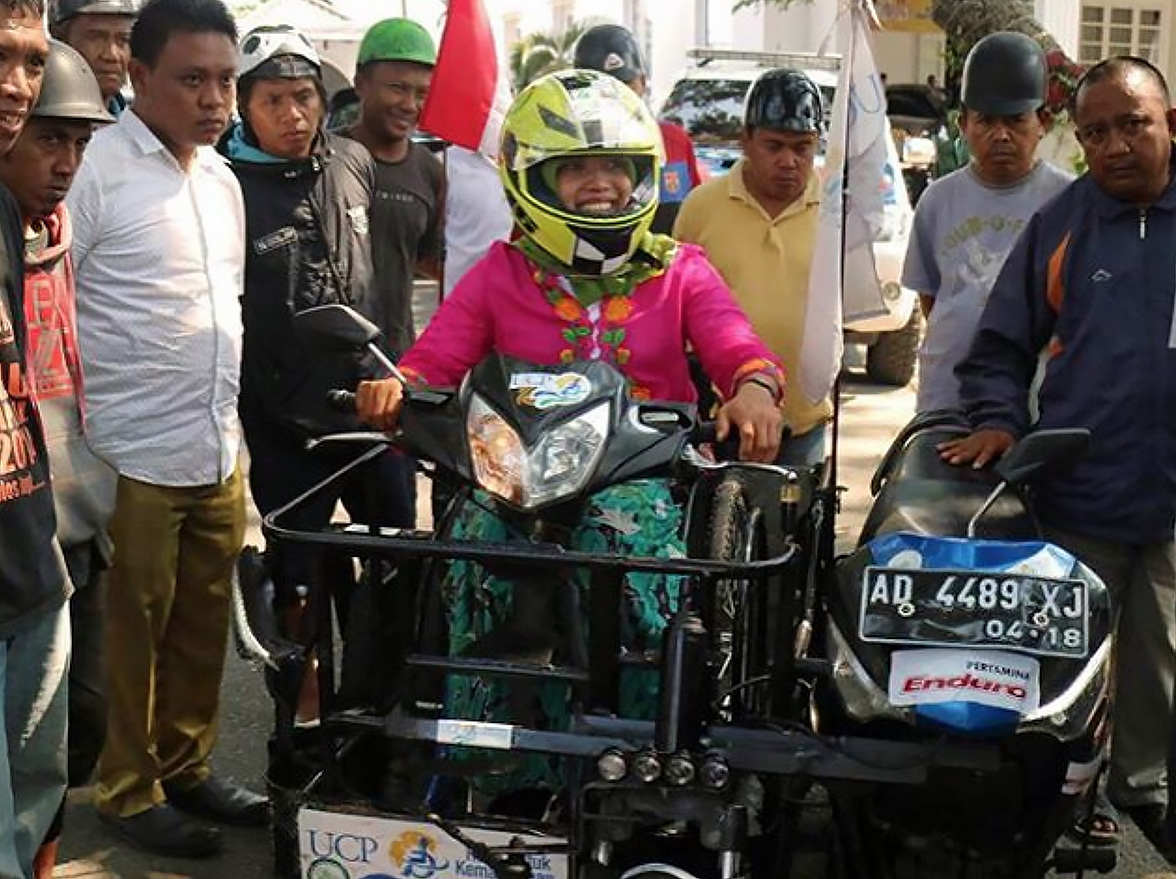-
What We Do
- WHERE WE WORK
-
About Us
 Welcome Message from Carol Jenkins
Welcome Message from Carol JenkinsFor more than 90 years, World Learning has equipped individuals and institutions to address the world’s most pressing problems. We believe that, working together with our partners, we can change this world for the better.
On my travels, I’ve had the opportunity to meet with many of those who have joined us in this mission. In Baghdad, we’ve trained more than 2,300 Iraqi youth who are already giving back at home. In London, our partners in the TAAP Initiative strongly believe that we are all responsible to practice inclusion. And in Vermont, our Experiment in International Living and School for International Training participants prove every day that they have the tools and the determination to change the world.
Please join us in our pursuit of a more peaceful and just world.
- Get Involved
Country: Nepal
Five Weeks in the Life of Rassu Manandhar, an Environmental Researcher and Advocate
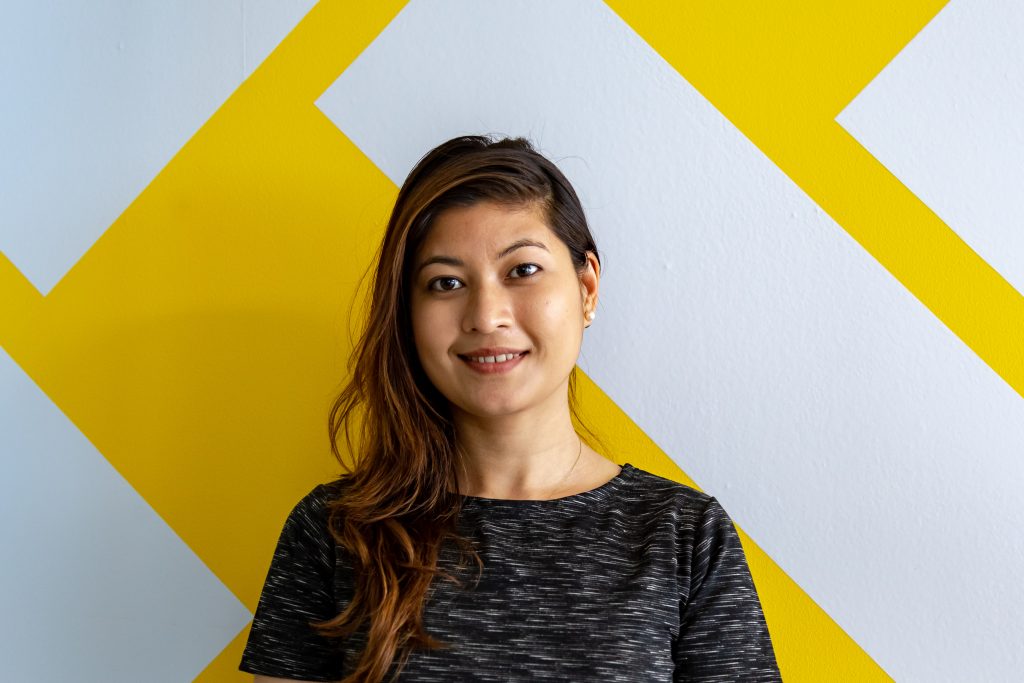
Rassu Manandhar is on a mission to save the environment in her native Nepal.
Home to the Himalayas and a rich biodiversity, the South Asian nation is extremely vulnerable to climate change. Its air quality has been rated as the fourth-worst in the world due to vehicle emissions and waste-burning activities. “It’s growing every day,” Manandhar says. “If people’s attitudes don’t change, it doesn’t change the environment.”
For six years, this environmental advocate has been working to do just that, studying air pollution in Pokhara city and leading community campaigns to create vehicle-free zones in the capital Kathmandu. Now, as program officer at the Alternative Energy Promotion Centre, she’s focusing on climate change.
But climate change is a global problem — and its solutions are global, too.
Seeking insight into how other countries are tackling climate change, Manandhar traveled to the United States this spring as part of the Professional Fellows Program for Governance and Society. Sponsored by the U.S. Department of State, the program brings professionals to the U.S. to exchange strategies and best practices and take part in fellowships at organizations across the country. World Learning implements the South and Central Asia component of the global program, working specifically with professionals from Nepal, India, and Pakistan.
Over the course of five weeks, Manandhar met with U.S. government officials to learn about policymaking and discovered U.S. culture through new friendships. Most importantly, she gained critical insights into global climate policy while working alongside experts at the World Resources Institute (WRI), a global research organization based in Washington, DC.
Follow along with Manandhar throughout her exchange program journey.
WEEK ONE
April 30
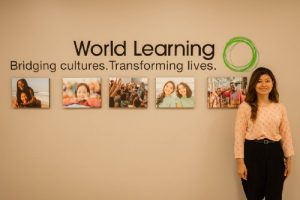
In late April, Manandhar — together with peers from Nepal, India, and Pakistan — began her program at World Learning’s headquarters in Washington, DC. During this first week, the fellows took part in workshops and briefings to learn about the U.S. legislative process and role of civil society. They also learned where they’d be placed for their three-week fellowships, many of which would be taking place in cities across the country.
Manandhar’s placement at WRI meant that she’d be staying in the nation’s capital for the duration of the program. Impressed to be working for such a renowned global research organization, Manandhar was looking forward to learning how WRI conducts research and prepares reports. She was also interested in learning more about U.S. culture, from its places, foods, and people, to its workplace environments. “The U.S. is always a good place to learn from,” she said.
May 2
After a few days of orientation, Manandhar started her fellowship at the World Resources Institute. Given her experience working on public campaigns to reduce air pollution, she was placed in the organization’s Governance Center with a cross-cutting role in air quality. Her first task? To conduct a literature review of how these campaigns are linked to global air quality policies.
WEEK TWO
May 10
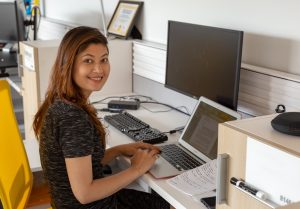
Manandhar’s first full week at WRI offered many opportunities to discover various aspects of U.S. work culture. Her fellowship happened to coincide with WRI’s biannual global meeting, which brings together staff from field offices all over the world. Manandhar was invited to attend the global meeting as well as other workshops on air pollution and climate change.
She was struck by how interactive those staff meetings could be in contrast to the lecture-style meetings that she’s more accustomed to attending. Some even included activities and games — one challenged employees to correctly sort items into compost, recycling, and trash — with prizes like water bottles. “I was very interested,” Manandhar said. “[The] activities were fun but at the same time we learned from them.”
May 11–12
Manandhar left DC to spend her first weekend in the U.S. exploring Philadelphia and New York with Rajani Tamang, another fellow from Nepal. Manandhar found the contrasts among the East Coast cities striking — from Philadelphia’s small city center to New York’s crowded megapolis.
WEEK THREE
May 16
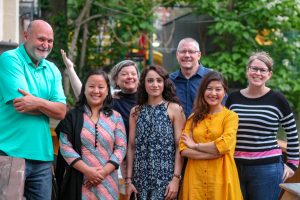
Sharing a meal is another great way to learn about a new culture. In week three, Manandhar and two other fellows (including Tamang) were invited to dinner at the home of Ron Munia, a volunteer who regularly hosts World Learning’s exchange program participants in Washington, DC.
Knowing that Munia had also invited some friends to the dinner party, Manandhar was a bit nervous. But she quickly felt at ease as the group chatted about their cultural difference and similarities over a delicious salmon dinner. “They made it very comfortable for us,” she said. “I like to meet new people and know about them. From that, we grow and we connect.”
Beyond U.S. culture, though, Manandhar was especially fascinated to learn more about Pakistani culture from her fellow program participant, Shaher Bano Abbasi, a women’s rights advocate. Manandhar says she didn’t know very much about women’s rights issues in Pakistan before the dinner party and was glad for the opportunity to learn more.
WEEK FOUR
May 22
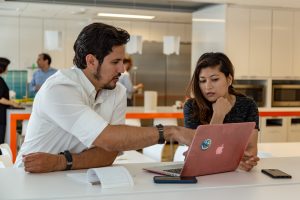
After two and a half weeks, Manandhar’s fellowship at WRI was coming to an end. She had been working diligently on her literature review with the help of her supervisor, Seth Contreras, who had offered advice on where to look for information and how to organize the report. He also offered insights from his own work at WRI. “It helped me to think how I can learn from them in implementing my campaigns and advocacy,” she said.
Manandhar also made a number of other professional connections throughout her three weeks at WRI. As a member of her Nepali organization’s core working group related to the Green Climate Fund, she was especially happy to meet a counterpart at such a renowned organized as WRI. “In Nepal, there are only a few organizations working in air pollution,” she explained. “So, if we can collaborate later and develop some projects and programs it is very important to make the connections.”
WEEK FIVE
May 29
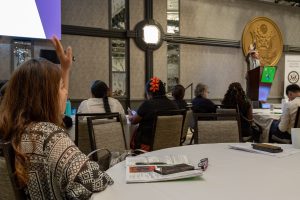
At the end of their fellowships, the rest of her South and Central Asian peers in the Professional Fellows for Governance and Society rejoined Manandhar in Washington, DC. For their final week of the program, they attended the Professional Fellows Congress, which gathers more than 200 fellows from 48 countries to develop leadership skills and build international networks.
Manandhar had an especially interesting experience in making new connections at the congress thanks to Vladimir Spencer, program manager at World Learning. He was hosting a dinner party at his house later that week and challenged the fellows to make at least one new friend at the congress who would accompany them to the party. Manandhar spent the conference chatting with fellows from all over the world and ended up befriending an environmental expert from Turkey. “That was interesting as well, to connect with people differently,” she said.
POST-EXCHANGE
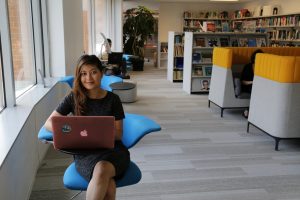
Manandhar has been quick to share what she learned in the U.S. since she returned to Nepal. As part of her project plan to educate the public on the importance of environmental sustainability and advocate for change, Rassu talked about the experience with the rest of the staff at the Alternative Energy Promotion Centre, and she’s already planning to use the literature review that she wrote at WRI to inform the future campaigns she works on to encourage Nepali youth to protect the environment. She’s also planning to write an article about her experience for the Kathmandu Post.
As she says, that experience was more than worthwhile. “It was good to know how the other countries are doing and to know how the World Resources Institute thinks,” she says. Moreover, she was grateful for the opportunity to experience the U.S. by living in it — commuting to an office, working 9 to 5, walking the city streets, and participating in the culture. “My perception has changed,” she said. “I found [people in the U.S.] very humble, I really did, and I feel like I have learned things from them personally.”
Learn more about the Professional Fellows for Governance and Society, South and Central Asia program.
WRI is a global research organization that spans more than 50 countries, with offices in the United States, China, India, Brazil, Indonesia and more. More than 700 experts and staff work closely with leaders to turn big ideas into action to sustain our natural resources — the foundation of economic opportunity and human well-being. WRI’s work focuses on six critical issues at the intersection of environment and development: climate, energy, food, forests, water, and cities and transport.
Meet the Modern Leaders Who Are Empowering Women Around the World
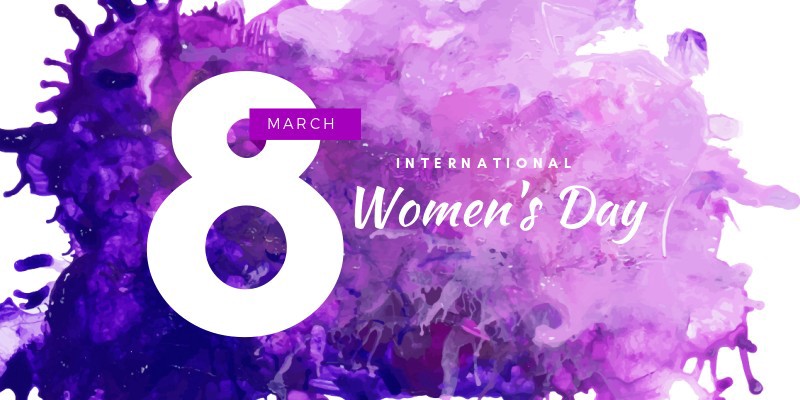
International Women’s Day, celebrated globally on March 8, is an opportunity to celebrate the social, economic, cultural, and political achievements of women and efforts to support them.
At World Learning Inc. — which includes World Learning, The Experiment in International Living, and School for International Training (SIT) — we work with emerging leaders around the world, equipping them with the skills and support to drive change in their communities and beyond. For example:
- World Learning’s diverse portfolio of global development and exchange programs strengthens leadership, intercultural understanding, and civic engagement among young people and adults; strengthens education systems; trains people in 21st-century skills, and more.
- The Experiment in International Living offers immersive study abroad experiences that give high school students a chance to explore the world while broadening their worldview and developing soft skills that will help them succeed in college and their careers.
- School for International Training prepares students to be interculturally effective global citizens through field-based academic study abroad programs for undergraduates and accredited master’s degrees and certificates for graduates and professionals.
Today, we’re shining a light on how nine of our more than 125,000 alumni are working to empower women and make the world a more inclusive and just place.
World Learning alumni return to their communities and, using their new skills, networks, and small grant funding, become changemakers.
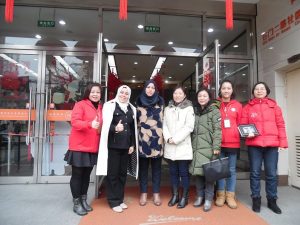 Nacira Amari
Nacira Amari
Nacira Amari has dedicated her career — which has taken her from mathematics professor to politician and director of an education institution — to creating new opportunities for women in Algeria. Amari joined the Leaders for Democracy Fellowship program, which provides academic and hands-on training to civil society leaders from across the Middle East and North Africa. There, she built her network and gained practical skills by working at the Arab Institute for Woman at Lebanese American University.
Those new skills have helped her make a difference. In 2017, Amari was elected to the Saida city council, where she has worked to increase women’s representation in government and to open schools that provide women with job skills training. She continues to urge other women to lead in their communities, too. “Women are [stronger] by developing themselves and then changing their society,” she says. “Victory is the ally of women who give others a better life.”
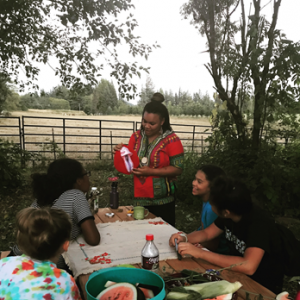 Allie Dyer
Allie Dyer
Former Fulbright U.S. student to Ghana Allie Dyer — along with other black, indigenous and leaders of color— noticed that health education was failing young women of color in their community of Portland, Oregon. They set out to change that. In 2017, Dyer earned a small grant to co-launch the program Brown Girl Rise. She did so after participating in the New Frontiers of Global Public Health seminar organized by U.S. Alumni Ties, which brings together alumni of U.S. government-sponsored exchange programs to learn about critical issues and collaborate with fellow alumni.
Brown Girl Rise leads health education and radical empowerment workshops rooted in community and culture for young girls and women in Portland. They discuss sisterhood and safe spaces, explore their historical connections to food and land, and share how racial and gender stereotypes impact how they view their bodies. “What we’ve learned is the holistic power of community — that community itself can be healing,” Dyer writes.
Brown Girl Rise is funded through an Alumni Thematic International Exchange Seminars (Alumni TIES) small grant from the U.S. Department of State, with funding provided by the U.S. government and administered by World Learning.
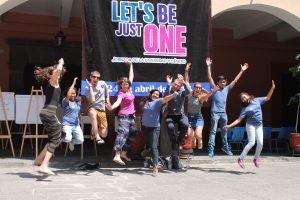 Alitzel Castillo, Jazmín Villalobos, Roberta S. Jacobson, Gladys Del Ángel, and Emmanuel Galindo
Alitzel Castillo, Jazmín Villalobos, Roberta S. Jacobson, Gladys Del Ángel, and Emmanuel Galindo
Violence against women is a serious problem facing communities around the world. In Puebla, Mexico, one group of high school students banded together to tackle that problem. In 2016, Alitzel Castillo, Jazmín Villalobos, Roberta S. Jacobson, Gladys Del Ángel, and Emmanuel Galindo took part in Jóvenes en Acción, a U.S. Department of State exchange program that builds civic engagement and leadership skills among students in Mexico. As part of the program, participants carry out projects in their communities.
These high schoolers launched a campaign to raise awareness about gender violence and the stereotypes that perpetuate it. “We knew that we had to make teenagers see that gender violence does not look just like some guy hitting a woman, or like street harassment,” Castillo writes in an email, “it looks more ‘familiar’ for all of us because we live surrounded by stereotypes and gender roles.” The students offered a series of workshops exploring gender stereotypes, LGBTQ issues, and sexual harassment, culminating in a Diversity and Gender Day, which brought more than 700 people for activities devoted to gender and inclusion.
The Jóvenes en Acción Program is sponsored by the U.S. Department of State with funding provided by the U.S. Government and administered by World Learning.
School for International Training alumni put their skills into practice, advancing social justice in their careers and lives.
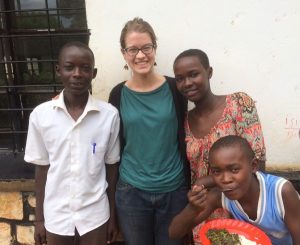 Leslie Massicotte
Leslie Massicotte
Alice Rowan Swanson fellow Leslie Massicotte, an alumna of SIT Rwanda: Post-Genocide Restoration and Peacebuilding, works in Kigali, Rwanda, with the youth center Mind Leaps. The center aims to give at-risk youth a place for education, training, and fun. Massicotte, an ESL teacher, saw increasing numbers of pregnancies among the young women at the center, so she used the Swanson Fellowship support to bring sexual and reproductive education to Mind Leaps.
“The whole idea is to use the money to start the teaching, but to make the project sustainable and able to run without my help,” she says. Leslie sees this effort as a natural outgrowth of studying with SIT. “My passion for giving back, serving others, and being abroad came together at SIT.”
Read more about Massicotte’s work here.
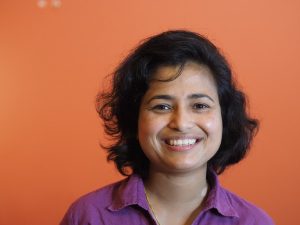 Suman Pant
Suman Pant
Suman Pant, academic director of SIT Nepal: Development, Gender, and Social Change in the Himalaya, strives to show students how the currents of gender and development intertwine in Nepal. Her PhD dissertation examined Nepal’s community forestry, in which women play a key role. “This idea of conservation emerges from eco-feminism theories. In Nepal, community forestry is very interesting because that’s the only platform where the national law mandates that there should be more women board members than men.”
Such ideas are relatively new to Nepal, Pant explains. “Thirty years ago, when education was still scarce and a little bit expensive, men went to school. Women didn’t. The illiteracy rate among women was very, very high. Now when you go to schools you’ll see — in primary schools, secondary schools — girls and boys [are] almost an equal percentage. I think Nepal’s case in terms of gender is very interesting because it has transitioned quite a bit, and at a fast pace and quite healthily, too.”
See a video of Pant discussing her program here.
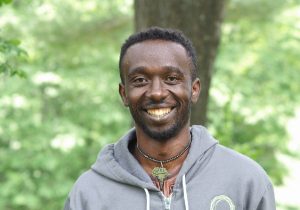 Sunday Justin
Sunday Justin
Sunday Justin has ties both to SIT Study Abroad and SIT Graduate Institute. He’s an alumnus of the CONTACT summer peacebuilding program, and academic coordinator for SIT in Rwanda. He’s part of our list for International Women’s Day for his women-focused work.
Rwanda’s civil war and genocide left many women who had become pregnant through rape. Sunday co-founded Iteme Foundation, which aims to support and empower not only the victims of rape, but also young mothers for whom prostitution has become a dangerous way out of poverty that often leads to pregnancy or HIV infection.
Being a single mother, Sunday says, “comes with a stigma. It comes with a judgment; it comes with a lot of conflict between them and their family and their children.”
Sunday’s story is part of SIT’s OnSITe podcast series.
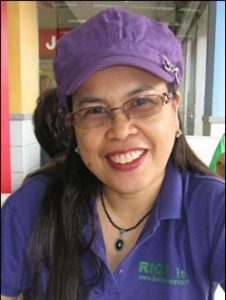 Vicky Garcia
Vicky Garcia
Vicky Garcia and Mary Hensley met in the early 2000s as International Management students at SIT Graduate Institute. After graduating from SIT, Garcia returned to her native Philippines, joining forces with Hensley to bring a new kind of economic security to the indigenous rice farmers of the Cordillera region of the Philippines. Building that kind of empowerment among indigenous farmers made sense to Garcia not only as a farmer’s daughter, but as someone who’d overcome physical and cultural challenges. She had contracted polio as a child and was left unable to walk.
Despite being told she’d never amount to anything because of her disability, Garcia eventually worked for the Philippine government, then came to the United States to attend SIT. Back home, she made her way to the very remote steppes of the Cordillera, where she has since helped farmers get assistance from the government and connected them to customers all over the world who appreciate the unique heirloom species of rice they grow. She runs Rice Inc. with Hensley.
Listen to their story here.
Experiment in International Living alumni return home transformed — and channel that transformation into their high schools and communities.
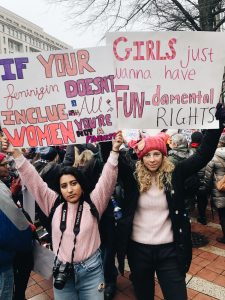 Yareni Murillo
Yareni Murillo
Yareni Murillo has been an activist since her freshman year when, as one of few Latinas in a mostly white high school, she sought ways to connect with other students and founded the school’s first Hispanic Club. “I realized that if no one else is going to speak for me, then I have to speak up for myself,” she says.
Last summer, Yareni traveled to India with The Experiment — an experience she describes as the best in her life. Visiting a new country with a diverse, all-female group led to empowering discussions about intersectionality and patriarchy.
Yareni is now working on a digital history project about Mexican-American women in the Chicano movement, who are often overshadowed by men. She brought a sign to this year’s Women’s March in Washington, DC, that read, “If your feminism doesn’t include all women, then it’s not feminism.”
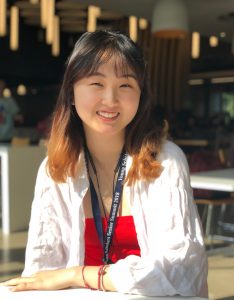 Hayeon Kayla Lee
Hayeon Kayla Lee
Hayeon Kayla Lee went to Japan as a high school freshman, in part to confront some deeply held family beliefs. Some of her relatives experienced Japanese imperialism in South Korea during World War II and still harbored very negative opinions about Japan.
“I always feel that the way to solve conflict and interact with others is through learning the background and history of a culture you might not understand,” says Hayeon, now a senior at a boarding school in New Hampshire. That summer in Japan with The Experimentwas a turning point that helped Hayeon begin to separate her own views from her family’s.
When she’s at home in Los Angeles, Hayeon tutors students in her inner-city neighborhood, focusing on helping girls from low-income and immigrant backgrounds improve their English and creative writing.
As for her own education, in college Hayeon wants to study abroad again — in Japan.
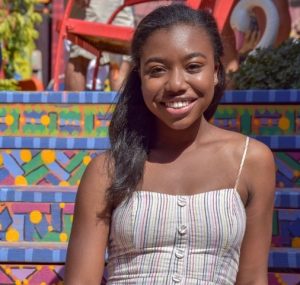 Lauren Jasper
Lauren Jasper
Lauren Jasper used to notice the Ujamaa Collective storefront in her Pittsburgh neighborhood, but didn’t know much about the nonprofit until last year, when the aspiring architect took a class at her high school called Global Leadership by Design. That’s where she found out about Ujamaa’s mission to create entrepreneurship and education opportunities for Africana women.
The same year, Lauren went to South Africa on The Experiment’s Leadership and Social Change program — an experience that ultimately drew her closer to Ujamaa’s purpose and her own. South Africa’s history of apartheid and social justice resonated with her, and the leadership aspect of the program was particularly important to Lauren, who knows she’ll need those skills in a the United States, where only 400 black women have ever been licensed as architects.
As a busy senior, Lauren still finds time to help in the Ujamaa boutique and create programming for teens. Through her architecture studies at Cornell, she hopes “to carry social justice into my designs to create affordable and sustainable housing.”
Norwalk Nonprofit Brings Together Students in Connecticut and Nepal under Communities Connecting Heritage Program
Creative Connections Receives U.S. Department of State Grant
Communities Connecting Heritage Program Kicks Off Its Second Year
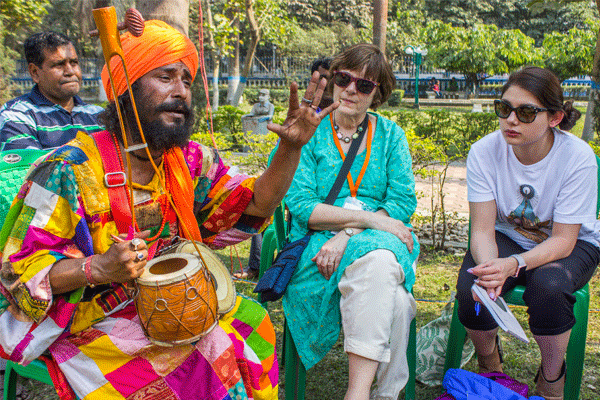 After the Communities Connecting Heritage (CCH) exchange program’s successful first year, World Learning is pleased to announce the five new cultural heritage projects that will receive funding in its second cycle. CCH, sponsored by the U.S. Department of State with funding provided by the U.S. Government and administered by World Learning, empowers youth to protect the cultural heritage of underserved communities around the world.
After the Communities Connecting Heritage (CCH) exchange program’s successful first year, World Learning is pleased to announce the five new cultural heritage projects that will receive funding in its second cycle. CCH, sponsored by the U.S. Department of State with funding provided by the U.S. Government and administered by World Learning, empowers youth to protect the cultural heritage of underserved communities around the world.
“Exchanges that connect and engage people from different communities are more valuable than ever,” said Christina Thomas, World Learning’s divisional vice president for youth exchange. “The Communities Connecting Heritage program offers an opportunity to do this in unique and creative ways, both at home in the U.S. and abroad. World Learning is thrilled to implement the second iteration of these cultural heritage projects and to be a part of this exciting and diverse community.”
Through virtual and in-person exchanges and exhibitions, the program supports new partnerships between U.S. and international cultural organizations and the communities they serve. CCH specifically helps these communities preserve their tangible and intangible cultural heritage, reinforce positive narratives, and advance cultural heritage through community outreach and public education.
The projects will be carried out among five U.S. organizations and five international organizations. Each organization was matched with an overseas counterpart during initial training and has been collaborating to develop engaging cultural heritage projects. The following five projects will be implemented in the next 12 months:
- Mandala Theater (Nepal) and Creative Connections (Connecticut)
Kalasanskriti ra Sampada: An Artistic Approach to Preserving Cultural Heritage and Community Healing will engage 30 youth from Nepal and the U.S. to capture and exchange art, audio, and video exploring their own cultural heritage, which they will use to facilitate workshops at local schools. - Bhasha Research and Publication Center (India) and University of Northern Colorado Anthropology Department (Colorado)
Reclaiming Heritage: The Intercultural Heritage Exchange Project will train up to 30 participants from the historically marginalized Chhara community in India and the Karenni refugee community in the U.S. to use virtual reality technologies to explore and document their respective cultural heritages, including family and spiritual traditions, festivals, performances, and natural heritage. - Youth of Osh (Kyrgyzstan) and New York Folklore Society (New York)
Cultural Bridge will challenge up to 30 youth to discover Kyrgyz and American cultural heritage by learning about oral history and cultural heritage documentation and contribute to preservation efforts by doing community service, producing media, and installing signage to support the cultural tourism industry. - Association MakeDox (Macedonia) and Dallas Black Dance Theater (Texas)
Widening the Lens will engage 12 African-American dancers and 12 Macedonian filmmakers to create a documentary exploring and celebrating African-American culture through dance and Romani heritage through music. - Centre for Fine Arts, Brussels (BOZAR) (Belgium) and Soul of Nations (Washington, D.C./Navajo Nation, Arizona)
Digital Natives will engage 10 young Native-American women from New Mexico and 10 young Belgian women from migrant families to create group artworks and video installations, exploring equality and women’s empowerment through the lens of personal narratives and cultural backgrounds.
The 10 organizations will now receive additional training on topics such as virtual exchange, experiential education, and participant care to prepare them to carry out their projects. The virtual exchanges will commence in fall 2018, leading up to the in-person exchanges and public exhibitions throughout the spring and summer of 2019.
About ECA
The U.S. Department of State’s Bureau of Educational and Cultural Affairs moves people to move ideas. ECA builds relations between the people of the United States and the people of other countries through academic, cultural, sports, and professional exchanges, as well as public-private partnerships. The State Department’s cultural diplomacy programs employ the arts to advance U.S foreign policy by sharing America’s artistic excellence, demonstrating America’s respect for other cultures, creating international networks, and deepening trust. www.eca.state.gov
Contact: [email protected]
About World Learning
World Learning works globally to enhance the capacity and commitment of individuals, institutions, and communities to create a more peaceful and just world through education, sustainable development, and exchange. Our programs advance leadership in more than 150 countries.
Nepal
Alumni Thematic International Exchange Seminars
Participant Profile
Participants are alumni of U.S. government-sponsored exchange programs and vary in age and level of expertise, but all will be engaged in the seminar topic and highly motivated to create change in their communities.
Please consult the list of U.S. government-sponsored exchange programs below.
- U.S. citizen: https://exchanges.state.gov/us
- Non-U.S. citizen: https://exchanges.state.gov/non-us
Participant Selection
Alumni TIES participants who are not U.S. citizens are nominated by the U.S. Embassies or Consulates in their countries. Please contact the U.S. Embassy or Consulate in your country to learn how you can participate in Alumni TIES. Potential Alumni TIES participants who are living in the United States can apply for specific seminars managed by World Learning. The web link to the online application will be distributed widely by the Office of Alumni Affairs of the Bureau of Educational and Cultural Affairs.
All participants for Alumni TIES seminars are selected by the U.S. Department of State.
Program Design
Alumni TIES seminars take place in six world regions and the U.S.; each seminar is three to four days for small groups of alumni. The seminars include speakers, capacity development trainings, and alumni networking activities. Through the small grants initiative, alumni have the opportunity to take action and make a positive difference in their communities.
Learn More
Watch more videos about the Alumni TIES program.
Read stories from past participants about their experiences at the seminars or with their small grant projects on the Alumni TIES blog.
For information on programs for U.S. government-sponsored exchange program alumni visit the International Exchange Alumni website.
Alumni TIES is sponsored by the U.S. Department of State with funding provided by the U.S. Government and supported in its implementation by World Learning, in partnership with the Office of Alumni Affairs of the Bureau of Educational and Cultural Affairs (ECA).
Communities Connecting Heritage
Communities Connecting HeritageSM Program Impact
____
CCH Alumni Small Grants
At the conclusion of the program’s third year, the CCH team opened the Communities Connecting Heritage Small Grants to organizational and community member alumni from all three CCH cycles. The following projects were selected for CCH Small Grant implementation.
Kristina Llane (Albania)
Title of Project: Beekeeping Tradition as and Educative Tool
This project aims to preserve and share the importance of local beekeeping traditions in the Gjirokastra community of Albania. Kristina will work with elementary school students to cultivate youth interest in beekeeping’s cultural role in their community. Throughout the project, students and teachers will contribute to an educational book on beekeeping to that will equip teachers to continue sharing with future classrooms. The project will conclude with a panel discussion focused on protecting and preserving culture, tradition, and the environment in Albania.
Kalpana Gagdekar (India)
Title of Project: Connecting Community with Their Traditional/Heritage Cuisine
This project will explore and document the Chhara community’s traditional cuisines, which are experiencing a disappearing effect under modern global influences. Kalpana aims to document the rituals and heritage of Chhara cuisine through seven video interviews with Chhara women elders. The project combines modern technology with traditional food heritage and welcomes Chhara members of all ages to reclaim and rediscover their own heritage.
Mandala Theatre (Nepal) and Creative Connections (Connecticut, U.S.)
Title of Project: Hamro Sanskriti: Preserving Cultural Heritage through Participatory Theatre
The goal of this project is to provide youth in Connecticut and Nepal with a deeper connection to their own culture through student-led virtual workshops. The workshops – spearheaded by theater trainers in Nepal and Connecticut – will teach participatory theater techniques to 250 high school students and conclude with a model forum theater piece produced by students for the public.
Athar Lina (Egypt)
Title of Project: Rawya: The Water Women
Rawya: The Water Women is a Cairo-based project aimed at restoring the historically significant Sabil Um Abbas, a 19th century religious building and gathering place, into a usable community space once more. In addition to restoring aspects of the building, the project will connect U.S. and Egyptian women storytellers Donna Bryson and Chirine El Ansary to curate a storytelling experience of powerful 19th century women from their respective countries. Their work will culminate in a video exhibition that will be on display in the newly renovated Sabil Um Abbas for the local community to experience.
Bhasha Research and Publication Centre (India) and University of Northern Colorado (Colorado, U.S.)
Title of Project: Reclaiming Heritage II: Building Social Bonds and Bridges with Cultural Heritage
This project will utilize digital library resources at UNC to create and share cultural heritage “snapshots” with the broader community. These short videos will help immigrants and refugees in Colorado and indigenous peoples in India share their cultural heritage while building bonds with their local communities. The project will provide its participants with the ownership and platform to share their own heritage while paving a pathway for integration with others in their community.
Outside the Lens (California, U.S.)
Title of Project: Youth Tellers
Youth Tellers is a cross-cultural collaboration between Latinx youth in California and Bosnia-Herzegovina, relying on the concepts of past, present, and future to explore students’ complex cultural identities. Using digital media tools including photography, videography, and youth-facing communication forums like Discord, the project will culminate in a virtual exhibition showcasing the participants’ cultural heritage exchange with one another.
Explore the Story section on the right to learn more about the unique cultural heritage projects implemented since 2018.
Digital Communication Network
Examples of Past Digital Communication Network Projects
- Internet vs. Democracy Forum
- Roaring 20s #Digital Forum
- Combatting Disinformation Training Program
- Digital and Media Literacy for NGOs Training Program
- Tolerance and Coexistence 2.0 Forum
- Montenegro Digital Influencers Hub
- Humor and Games for Social Good Forum
Fulbright Specialist Program
What?
Link U.S. Experts and International Institutions
A program of the U.S. Department of State, Bureau of Educational and Cultural Affairs, the Fulbright Specialist Program is a unique opportunity for U.S. academics and established professionals to engage in two- to six-week consultancies at host institutions across the globe. Host institutions, including universities, non-profits, and other organizations, develop and submit projects for approval by the U.S. Embassy or Fulbright Commission in their country in wide-ranging academic and professional fields that build capacity and promote long-lasting linkages between individuals and institutions in the U.S. and abroad.
Why?
Address Priorities and Build Institutional Capacity at Institutions Around the World
An important companion to the traditional Fulbright Scholar Program, the Fulbright Specialist Program differs by providing short-term exchange experiences that tackle discrete, sometimes rapid response, projects. The Fulbright Specialist Program encourages participation of both university faculty and highly experienced non-academics, including legal experts, business professionals, public health practitioners, scientists, IT professionals, artists, and journalists. The program is a mutually beneficial opportunity for the Specialist who may not be available to leave their position for an extended period of time and the host institution which needs an experienced partner to jointly tackle a problem or examine an issue on a short-term basis.
How?
Become a Fulbright Specialist: Apply to Join the Roster
Fulbright Specialists are a diverse group of highly experienced, well-established faculty members and professionals who represent a wide variety of academic disciplines and professions. In order to be eligible to serve as a Fulbright Specialist, candidates must have significant experience in their respective professional field and be a U.S. citizen at time of application. Eligible disciplines and professional fields supported by the Fulbright Specialist Program are listed below.
- Agriculture
- American Studies
- Anthropology
- Archeology
- Biology Education
- Business Administration
- Chemistry Education
- Communications and Journalism
- Computer Science and Information Technology
- Economics
- Education
- Engineering Education
- Environmental Science
- Law
- Library Science
- Math Education
- Peace and Conflict Resolution Studies
- Physics Education
- Political Science
- Public Administration
- Public/Global Health
- Social Work
- Sociology
- Urban Planning
Interested candidates can find more information about the Fulbright Specialist Program and apply to serve as a Specialist at fulbrightspecialist.worldlearning.org. Candidates who meet all eligibility requirements will have their full applications reviewed by a panel of their professional peers. Candidates who are approved by the peer review panels will then join the Fulbright Specialist Roster. Individuals remain on the Specialist Roster for a three-year term and are eligible to be matched with a host institution’s project abroad during that tenure.
The following costs are covered for those Fulbright Specialists who are matched to a project: international and domestic airfare, ground transportation, visa fees, lodging, meals, and incidentals. A daily honorarium is also provided.
Become a Host: Bring a Fulbright Specialist to Your Institution
The Fulbright Specialist Program allows universities, cultural centers, non-governmental organizations, and other institutions abroad to host a leading U.S. academic or professional to work on diverse, short-term collaborative projects where the Specialist conducts activities which may include, but are not limited to:
- Delivering a seminar or workshop
- Consulting on faculty or workforce development
- Developing academic or training curricula and materials
- Lecturing at the graduate or undergraduate level
- Conducting needs assessments or evaluations for a program or institution
Institutions interested in hosting a Fulbright Specialist should contact their local Fulbright Commission or U.S. Embassy for country-specific requirements and deadlines.
Contact information for all participating countries is available on the fulbrightspecialist.worldlearning.org website.
For more information or questions about the Fulbright Specialist Program, please email [email protected].
The Fulbright Specialist Program is a program of the U.S. Department of State with funding provided by the U.S. government and administered by World Learning.
Global Undergraduate Exchange Program
For highlights from the Global UGRAD Program, visit our newsletter, the Global Gazette.
Global UGRAD
International Visitor Leadership Program
End of Year Report
Chosen by U.S. embassies worldwide to participate, distinguished professionals include:
- parliamentarians
- government officials
- entrepreneurs
- NGO leaders
- journalists
- academics
- arts administrators
- mid-career professionals
Programs focus on policy issues in areas such as:
- government
- international security
- foreign policy
- entrepreneurship
- economics and trade
- media
- women’s leadership
- education
- public health
- arts
- agriculture
- disability rights and inclusion
World Learning staff members design national itineraries, arrange logistics, set up meetings in Washington, DC, and coordinate the collaboration of U.S. Department of State program officers, interpreters and International Visitor Liaisons, and more than 85 community-based member organizations from the Global Ties U.S. Network who arrange local programs nationwide.
Participants
Most participants are mid-career professionals and emerging leaders, and for many, this is their first visit to the U.S. Groups are of varying sizes, from single visitors to groups of 25 or more. World Learning program staff work closely with their State Department counterparts to design a program customized to the project objectives and the visitors’ interests.
Participant Selection
IVLP candidates are selected solely by U.S. embassy personnel in each country. There is no application form. World Learning is a private sector partner of the U.S. Department of State; our role is limited to designing programs for participants once they arrive in the U.S. For further information regarding the program, please consult the U.S. Department of State’s website.
Program Design
A typical project includes up to a week of meetings in Washington, DC, to provide an orientation and overview of the theme and to introduce visitors to federal officials and agencies, national organizations, academics and think tanks, nonprofits and NGOs, and professionals in their specific field of interest. All projects include a briefing on the US federal system of government. Meetings may include panel discussions, site visits, workshops, individual interlocutors, job shadowing, or service opportunities. Visitors typically travel to an additional three or four cities in geographically diverse regions of the country; the itinerary may include a state capital and a small town to provide first-hand exposure to the great diversity that exists in the U.S. Also included in the program design are hospitality dinners, school visits, community service activities, and cultural events such as rodeos, state fairs, festivals, visits to national parks, or events that highlight some unique aspect of the region visited.
Participant Experience
“My recent experience in the IVLP program is so far the deepest ever for me to see and understand the full picture of what America as a country is like. I strongly believe this program will have a very long-term impact on my views about America and the world and to some extent it has already helped me to understand many long-time questions.” – Journalist from China
The International Visitor Leadership Program is sponsored by the U.S. Department of State with funding provided by the U.S. Government and administered by World Learning.
Online Professional English Network Program (OPEN Program)
Professional Fellows for Governance and Society, South and Central Asia
The program includes the following components:
- Participant selection and pre-departure orientation in India, Pakistan, Sri Lanka or Nepal;
- A one-month U.S. experiential program for participants from India, Pakistan, Sri Lanka, and Nepal that includes fellowships, interactive seminars, site visits, synthesis discussions, and designing follow-on projects (multiple cohorts)
- In-country seminars and support of follow-on activities for participants from India, Pakistan, Sri Lanka, and Nepal, including workshops and consultations by American experts (multiple cohorts)
- The U.S. program begins with an orientation in Washington, DC that focuses on the structure of the U.S. government, the legislative process, and the role of civil society. Following is a four-week fellowship in several U.S. cities, which includes professional fellowships, seminars, homestays, and civic engagement. Participants then return to Washington, DC for the concluding Professional Fellows’ Congress, which includes workshops, meetings with US government officials, and a program debrief.
Fall 2017 Professional Fellows Video Project
https://www.facebook.com/eshasinghalagh/videos/10155150026347916/
Spring 2017 Professional Fellows Video Project
The Professional Fellows for Governance and Society program is sponsored by the U.S. Department of State with funding provided by the U.S. Government and administered by World Learning.
Special Programs to Address the Needs of Survivors
Grantees of the program included:
Albanian Disability Rights Foundation, Al Hussein Society, Association for the Physically Disabled of Kenya, Buckner International, Catholic Relief Services, The Center for Victims of Torture, Christian Blind Mission International, Cooperative Orthotic and Prosthetic Enterprise, CURE International, EveryChild, Friends International, Global Communities, Handicap International, Health Volunteers Overseas, International Nepal Fellowship, International Rescue Committee, Leonard Cheshire Disability, Mobility India, Motivation Charitable Trust, Motivation Romania Foundation, St. Boniface Haiti Foundation, United Cerebral Palsy Wheels for Humanity, University of Iowa, University of Pittsburgh – International Society of Wheelchair Professionals, Whirlwind Wheelchair International, World Institute on Disability, and World Vision.




